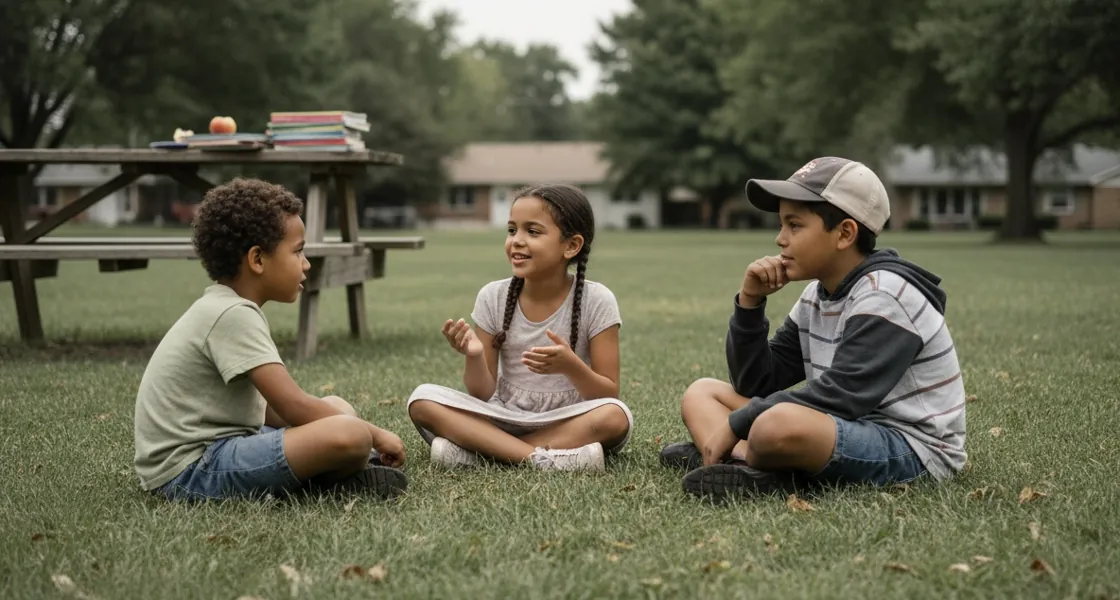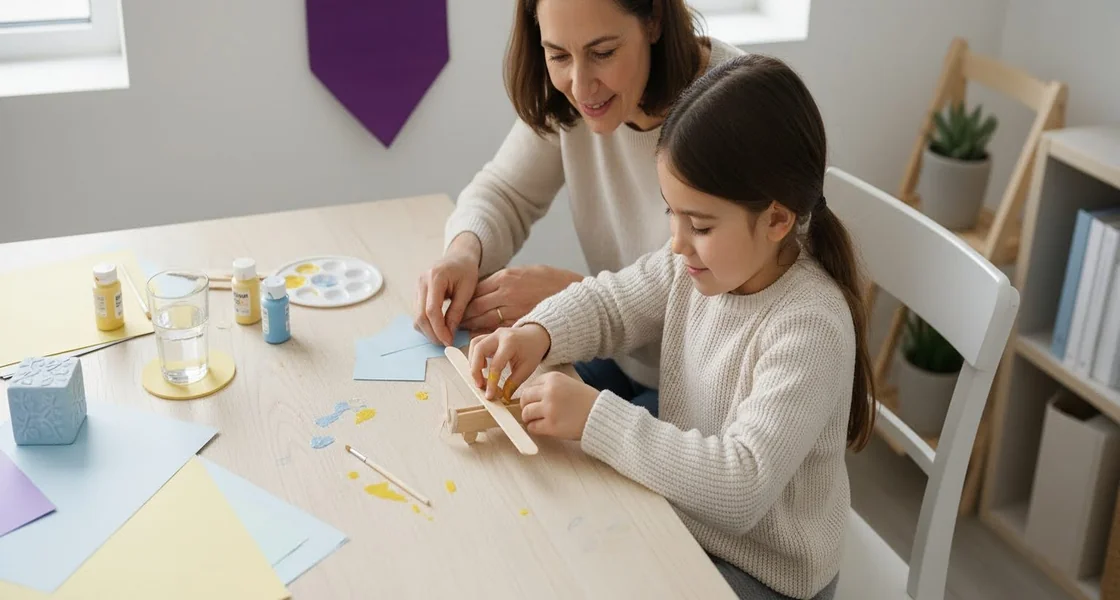Some kids seem to live in two worlds at once, thriving well beyond their peers in certain areas while finding everyday moments surprisingly difficult. If your child shows remarkable gifts alongside social or sensory challenges, you may be seeing signs of twice exceptional autism. Because these learners are often misunderstood, it’s important to look beyond the surface and recognize the whole child with their strengths and struggles.
When you understand how giftedness and autism intersect in your learner's daily experience, you can better advocate for appropriate support while nurturing those incredible strengths. This journey of discovery opens doors to personalized learning approaches that honor your child's unique mind, celebrate their passions, and provide the support structure they need to succeed. Outschool offers a welcoming space for twice exceptional autistic learners, with flexible, interest-driven classes designed by teachers who understand neurodiverse kids.
What does twice exceptional with autism mean?
Being twice exceptional with autism means your child has extraordinary strengths right alongside the unique traits of autism. Twice exceptionality, or 2e, describes children who are gifted in one or more areas while also navigating a learning difference. Autism is a neurodevelopmental difference that can shape how a child communicates, processes sensory input, and relates to others.
When these two realities come together, your child may amaze you with advanced abilities in reasoning, creativity, or memory, while also finding daily life, like social interactions or sensory experiences, especially challenging. Sometimes their gifts make autism traits less visible, and other times autism traits overshadow their gifts. This “masking” can make it hard to understand what your child needs fully.
This understanding helps you celebrate your child’s brilliance while also providing the right support for their challenges, creating space for them to thrive as their whole self.
Recognizing the signs of twice exceptional autism in your child
If you’re wondering if your child might be showing signs of twice exceptional autism, it helps to know that these signs can be both inspiring and confusing. Many 2e autistic children show uneven patterns of growth, soaring ahead in some areas while needing extra support in others.
Here are some common signs parents may notice:
- Advanced abilities in some areas, but struggles in others
- Very strong or unusual interests
- Asynchronous development
- Heightened sensory sensitivities
- Uneven academic performance
- Unique social patterns
Because these signs can present differently from child to child, a professional evaluation is essential for clarity. Comprehensive evaluations by a licensed diagnosing psychologist can help distinguish between giftedness and autism traits, celebrate your child’s strengths, and guide families toward the right path for challenges and talents.
How to nurture 2e learners with autism
Every twice exceptional autistic child needs support that values their incredible abilities and the areas where life feels harder. Homeschooling offers the flexibility to create a learning environment that builds on strengths while also easing daily challenges.
Here are some ways you can nurture your child’s growth with warmth and intention:
- Encourage special interests: Use passions like art, coding, or science as doorways to meaningful learning and motivation.
- Provide structure with flexibility: Keep predictable routines but leave room for adjustments when your child needs them.
- Support sensory needs: Offer calming tools like noise-canceling headphones, fidget items, or quiet corners.
- Balance challenge and support: Provide advanced opportunities in subjects they excel at while providing extra help in harder areas.
- Teach self-advocacy skills: Guide your child to recognize their needs and practice expressing them in safe, supportive ways.
- Build supportive connections: Surround your child with mentors, teachers, and peers who respect both their giftedness and their autistic identity.
With these strategies, you can help your child feel understood, capable, and proud of the unique way they experience the world.
FIRST MONTH FREE!
Get support that meets kids where they are.
Learn moreSupporting your twice exceptional autistic learner at home and in the community
Supporting your twice exceptional child with autism means weaving warmth, encouragement, and practical strategies into every part of their day. By focusing on both strengths and challenges, you create an environment where your child feels valued and understood.
At home, you can create flexible routines, use visual reminders, and offer gentle coaching that eases challenges while still leaving room for creativity and big ideas. Professional evaluations and ongoing support from specialists can guide you in tailoring strategies that truly fit your child’s unique profile.
In your community, connecting with other families reminds you that you’re not alone and allows you to share strategies, friendships, and encouragement. Seeking supportive networks, whether local groups, online communities, or professional resources, ensures you have guidance and inspiration as your child grows.
When you help your child feel understood and celebrated, you give them the confidence to embrace who they are and the tools to grow into their full potential.
Twice exceptional autism frequently asked questions (FAQs)
Supporting a child with twice exceptional autism is not an easy task. This FAQ is here to give you clear answers, practical ideas, and encouragement by addressing common misconceptions, sharing advocacy strategies that make a real difference, and reminding you that you’re not alone.
What are the signs of twice exceptional autism?
Signs of twice exceptional autism can include advanced skills in certain areas alongside struggles in others, very strong interests, uneven academic performance, and heightened sensory sensitivities. These signs vary widely, making it hard to understand your child’s profile on your own. A professional evaluation helps clarify whether giftedness and autism are both present, ensuring your child’s strengths are recognized and their challenges supported.
What are some common myths about twice exceptional autism?
One persistent myth suggests that gifted children cannot have learning disabilities, when in reality, these frequently co-occur. Another misconception frames twice exceptional children as simply "quirky" or "difficult," dismissing their genuine need for specialized support and understanding. Parents often hear that their child is "just being lazy" or needs to “try harder” when they excel in some areas but struggle significantly in others, failing to recognize that this uneven performance is actually a hallmark of twice exceptional learners. It’s also a common misconception that gifted learners are gifted in every subject or area of schooling. As an example, a 2e learner may excel in literature but be diagnosed with dyscalculia, a learning difference in math.
How can you support your child’s needs while homeschooling?
Start by building on your child’s strengths and noticing where they need extra help. Keep records of their progress, including any professional evaluations, so you can adjust your approach with clarity. You might create flexible lesson plans that let them move ahead quickly in areas of interest, while also providing extra practice or tools for areas of challenge.
Remember, you know your child best, and the strategies that work at home, like visual schedules, sensory supports, or hands-on projects, can be woven into your homeschool routine to make learning joyful and effective.
How can families balance academic challenge with social-emotional support for 2e learners?
Focus on your child's emotional well-being as the foundation for all learning, recognizing that academic growth happens best when they feel safe and understood. Create opportunities for your child to experience success in their strength areas while providing specific support in their challenge areas.
Creating a path where your 2e learner can thrive
Raising a twice exceptional autistic child comes with both joys and challenges, but at the heart of it all is the opportunity to see your child’s gifts shine while supporting them through the struggles that may come alongside. When you celebrate their unique abilities and provide understanding for their challenges, you help them build the confidence to explore the world as their authentic self.
Outschool is here to help you along the way. With flexible, interest-driven classes and supportive teachers who understand neurodiverse learners, you’ll find a space where your child’s strengths are encouraged and their challenges respected.






.svg)
.svg)







